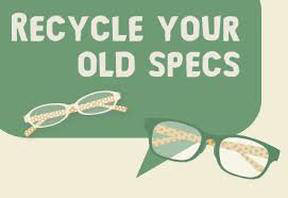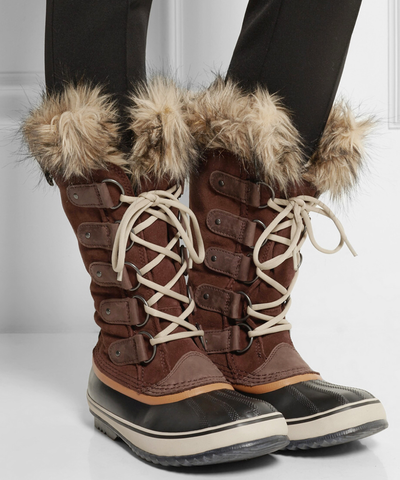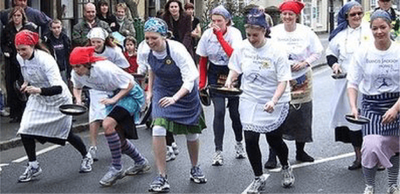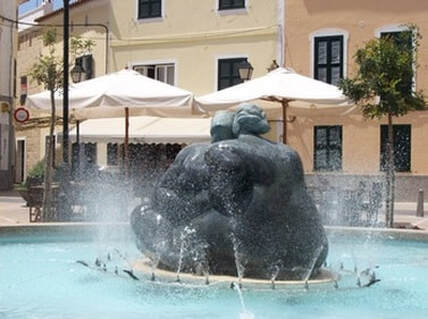 Cuitadella Menorca (C) Eileen Kersey Cuitadella Menorca (C) Eileen Kersey Sadly our planet faces many challanges not least maintaining an adequate water supply. We all need to plan ahead but adjust our behaviour now. Withougt frightening children introducing good and sensible water management in childhood is a great place to start. Teach them that water is precious and should never be taken for granted. In order to teach children how to conserve water, it is important to make sure that first they understand water. This means teaching them that water is a vital life giving resource, is not limitless, is not free and on the whole is a precious commodity. The lack of water around the world: Depending upon the age of the child, or children, teach them how scarce water is in some countries. Research on-line for examples of countries that have a poor water supply. This should include those that have poor quality water. There are many children and adults around the world that have to walk miles each day just to reach some water, however poor the quality. Teaching a child not to take the fact that currently his or her water supply is on tap for granted is a good first step. It may also be useful to explain to children the cost of water. In some countries the water supply may be metered, whilst in others, such as the UK, a water rate may be payable. Children need to know that water is not a plentiful and free resource. The water they use in their homes is good quality and this purification costs money. Uses of water: Now that the child knows the true cost, value and possible scarcity of water it would be a good time to begin thinking about the uses of water. Get the child or children to make a list of the uses of water. Remember to include, paddling and swimming pools, drinking water, showers and baths, laundry, water pistols and playing, cleaning and so much more. Try to use examples that are pertinent to those involved. For example, talk about if their bed linen could not be washed. What would happen if there was no water to wash the dishes, bathe, clean their teeth, wash their hair, go for a swim and so on. Using pertinent examples will help the child understand the importance of water. Explain that sometimes there can be a drought: Using examples of periods of local drought show the child why it is so important to conserve water. Explain how difficult it is to predict when such a drought may happen again, and so this is why we must conserve water when it is not in short supply. Ways for children to conserve water: So it will now be time to consider ways that the children can conserve water. Ask them for suggestions. Get them thinking about the ways that they sometimes waste water. Perhaps currently they flush the toilet when it is unnecessary or leave the tap or faucet running whilst they clean their teeth. Making it personal will help the child realise how much water is wasted and how this amount can be reduced. It may be a good idea to draw a chart and identify ways to save water. Perhaps there could be a reward system put into place for new ideas to conserve water. Running a water conservation competition between a few children may kick start the process. If you can teach your children to respect and value water you are halfway there. Once you have begun some good water conservation practices with children, such as never leaving the faucet or tap running, using washing-up water to water the garden, not using the toilet as a bin that is flushed after dropping litter down it and never over filling a kettle these good habits will remain into adult-hood. Once a child fully understands water he, or she, should want to conserve whatever they can. Resources: Water Aid Coronavirus: what might more hand washing mean in countries with water shortages? England could face droughts in 20 years due to climate breakdown - report
0 Comments
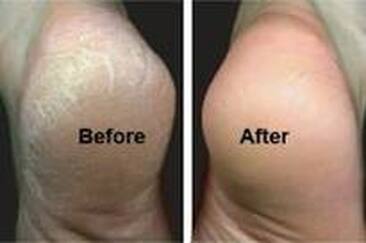 Reason for purchase With age every part of me seems to be gradually giving up the ghost. I finally gave in and saw a chiropodist some time ago. The treatment was mostly cosmetic as I have started suffering with increasingly rough skin on my feet, and do find it difficult to get to grips with this. In fact, I could probably sand down a rough piece of wood with the heels of my feet, so I guess you catch my drift. Previously used In the past I have tried Scholl foot cream to treat the cracked skin on my feet but with only a limited success. Why Flexitol? The chiropodist recommended that before I visit again I should try Flexitol Heel Balm. He told me that, due to the products oily consistency, it worked much better on troublesome foot skin than the Scholl product. I guess he was hoping his work would be easier next visit. I purchased a 56g or 2 ounce tube from the nearby chemist and hot-footed it home. Well I had just had my feet lovingly tended and for once they were smooth as silk! Flexitol The outer cardboard packaging stated that Flexitol is "The medically proved treatment for dry and cracked feet. Scientifically formulated to improve skin hydration. Suitable for general and diabetic foot care. Number 1 in the UK and Australia". As diabetics often have foot problems I think this product would be very useful for any such sufferers. Once out of the box the tube is noticeably small but this makes it convenient to store, and carry with you if necessary. Flexitol is applied to clean, dry feet for maximum effect. I initially applied mine just before retiring to bed and decided to wear a pair of thin cotton socks, just in case. I was glad that I did as this cream is very oily and would have probably made a mess of the bedding. However it does work Flexitol is only recommended for adult use. It works best if applied twice a day, morning and evening. The manufacturer also recommends that you continue to use Flexitol, as a foot maintenance cream, once the dry skin problem is under control. Well, they would say that I hear you say, however, if you have problematic foot skin, then it will be as well to keep using Flexitol. Personally I had no problems with Flexitol but apparently this product can cause slight stinging, especially if any cracks in your skin are very deep. The active ingredient in Flexitol is Urea and Flexitol contains 25 percent of this in a highly rich, moisturising base. It is a thick, yellowish cream which squeezes easily out of the plastic tube. For users who have mobility issues the lid is a chunky, screw top cap which opens easily. The product has a slight smell but I cannot discern what it is. It is not an unpleasant fragrance though. If you want to get your feet nice and smooth for summer, or have a health condition that affects the skin on your feet, then give Flexitol a try. It retails at about four pounds and fifty pence in the UK, is widely available, is easy to use and will do the trick. Once your feet are back in shape you can always revert to the pretty smelling creams such as cocoa butter, if you prefer. Flexitol is made in Australia for export to the UK. Get a sample by following this link  Time on your hands and the internet at your fingertips? Now could be a perfect time to go on a journey - a journey into your family history. Face to face contact may not be possible right now but with FaceTime, WhatsApp, Smart Phones and more you can still do this plus during the current #StayHome period many websites are offering free online resources. Although any information which you may receive from your family could have flaws, it is a good place to start, in researching your family tree. For one thing it will probably surprise you to find out just what a checkered past your family may have. If you take some notes you will have a good background to start your more serious research of parish and registry records. Looking back I wish that I had found out more about my family history from my relatives when I could. However, losing so many of them whilst I was still young prevented me from doing so. You also need to ask relatives whilst they still have all their mental agility and faculties. If you leave it too long you may simply get muddled up ramblings, although often older people can remember the distant past more easily than yesterday. Some good questions to ask
Open questions such as those above should encourage more information to be forthcoming. If you ask questions as if you are really interested, which hopefully you will be, the person should open up. We all have mysteries in our families, some small and some really exciting. It would be great to use and store this wealth of knowledge before it is lost in oblivion. As people are more interested in Genealogy these days there are many useful tools in researching your family tree fully. However for the strange, personal and quirky aspects of your family history you cannot beat listening to an old family member just reminiscing. Talking with older members of your family can be a real treat. You will need to be tactful and sensitive and know when and if to stop. It may be that some of the personal facts that you are reminding the person about are still raw, or all too personal. Do not interrogate them and never over step the mark of decency and respect. Remember though to keep a record of what you discover as you too may remember it a little differently over time. Find your past is just one online resource  Today we are talking haemorrhoids so get the giggling over before we start! Hemorrhoids, spelled as haemorrhoids in the UK, are also commonly referred to as piles. The mere mention of this condition can result in hoots of laughter, but not for the person who has piles. This condition can cause embarrassment, pain and more but it does not have to be like that. These days haemorrhoids can be successfully treated quickly by over the counter remedies; in the long term though further treatment may be necessary. During the current coronavirus #StayHome inactivity and changes in diet you could end up with problems with piles. Haemorrhoids can occur in a woman during pregnancy, a young person or more commonly an older person. Many people develop haemorrhoids so really there is nothing to feel embarrassed about. As with most medical conditions diagnosis is key. The signs and symptoms of haemorrhoids could be indicators of more serious health problems and so confirmation by a health-care professional is advisable, if not essential. What are haemorrhoids? Haemorrhoid is the name used for the swelling or inflammation of the veins around the anus. This can also happen in the rectum. The veins may become very large, itchy, painful and bleed from time to time. In some cases passing stools will be very painful and further bleeding may occur. Haemorrhoids are sometimes described as varicose veins. Haemorrhoids may be present internally, externally or both. What causes haemorrhoids? The possible cause of haemorrhoids could be:
How to know if you have haemorrhoids In general the signs and symptoms of haemorrhoids may include:
Initially you may notice only one or two of the signs and symptoms of haemorrhoids as detailed above. Seeking a medical diagnosis is important as some of these symptoms could indicate a more serious illness, such as cancer, or be an indicator of other bowel problems. In particular passing blood when you open your bowels could be worrying. However once you have the correct diagnosis there are many treatments available which should improve, or maybe cure, your haemorrhoids. Certainly a good diet is a must. For your medical professional to confirm that you have haemorrhoids he or she will need to carry out a physical examination. This should be relatively painless but of course it will depend how bad the haemorrhoids are. It will be better if you seek an early diagnosis before the problem worsens. You will need
Tips & Warnings
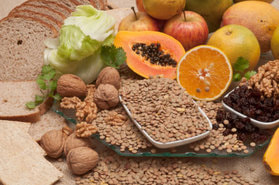 OK so we are going to talk haemorrhoids, piles, farmer giles, call them what you will. For some reason haemorrhoids often raise a giggle when mentioned but to any person who has experienced them it is no laughing matter. #StayingHome during the current crisis could result in a range of health issues not least this uncomfortable health problem. Over the counter treatments may not be easily available just now meaning looking after yourself is vital. Haemorrhoids can be a painful and embarrassing condition. Before starting any course of treatment though, be it natural or not, a correct diagnosis is essential. Consult your health-care professional for confirmation of this condition if possible. If you have haemorrhoids there are quite a few treatments available. Although surgery is an option this is usually the last resort. Haemorrhoids can be successfully managed and may never need such drastic measures. Bathing Regular bathing is important if you have haemorrhoids. Cleanliness is essential, however you may find that perfumed soaps make your condition worse. Bathe the affected area in warm water a few times a day, or at least until your hemorrhoids are under control. Make sure that you dry the area around your rectum thoroughly but gently. Diet One of the best ways to prevent haemorrhoids or help treat them is to eat a good diet. You will need a diet that is rich in fresh fruit and vegetables, high in fibre, low in processed foods and generally well balanced. Include plenty of fluids, such as water, in your diet as this will make your stools easier to pass. Treat external haemorrhoids with ice to reduce any swelling Make yourself an ice-pack. Apply this to the hemorrhoids to help reduce any swelling. Ensure that there is sufficient material between you and the ice to prevent ice burns but a thin enough material for the ice to work. Over the counter haemorrhoid preparations Chemists and pharmacists sell over the counter hemorrhoid preparations. For external hemorrhoids there are creams and for internal hemorrhoids there are suppositories. Many of the creams can be used in both situations. For some people the hemorrhoids can be both external and internal. There is no need to be embarrassed about asking for such items as hemorrhoids are a common condition, especially in the western world. If you feel embarrassed check out the pharmacy aisle of your local supermarket. Many of these hemorrhoid preparations can be found there. This means that you can simply pop the item into your shopping trolley without asking an assistant. Clothing Loose, cotton clothing around the affected area will be the best option. Select underwear that is loose and not restrictive. At least until the hemorrhoids subside, stay clear of thongs, control panties and very tight jeans. Aim to wear clothing that allows some air flow and is made of a cool, breathable material. Natural treatments and remedies Consult your local health store for details about natural treatments for haemorrhoids. Research:
These products may be in pill or cream form, although some may be available to make into a tea infusion. There are various homeopathic treatments available if you prefer to try such treatments. Exercise As haemorrhoids are inflamed veins, getting plenty of exercise should help. A good level of exercise can certainly help prevent haemorrhoids. As part of treating existing haemorrhoids an increased level of exercise completes the treatment plan. You will need
Tips & Warnings
r
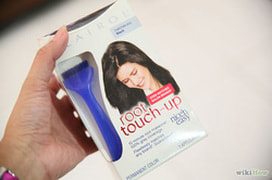 With the Covid-19 lock down fixing your hair may seem both trivial and yet important. Keeping ourselves mentally well and in good shape is vital. Colouring your hair at home may be the norm for you but then again it may not. So just how often is it safe to colour your hair? Originally written before the current crisis here are some tips. You should colour your hair as often as you need to; need being the important word. Certainly sometimes you, and others, may want to be a brunette one day, a blonde the next and back again by the end of the week, but this is not realistic. Colouring your hair too often can be a disaster even with 21st Century gentler products available. You must always exercise caution when colouring your hair. Over the years skin tones change and you may suddenly want to colour your hair, though you may never have done so before. Graying hair can be flattering but it can also be cold steel gray almost resembling fuse wire in texture, while others are luckier and have soft snow white fluffy hair. If you simply want to cover a few stray gray hairs use a semi-permanent hair dye. These are much less harmful to your hair and gradually wash out. If you are naturally gray and want to stop dyeing your hair ask a professional about removing the dye. It can be done, but does take time and will not happen overnight. It is easier, and should be safer, to have your hair coloured at the hairdressers. A reputable hair salon will always do skin patch pests to check for potential allergic reactions to the dye. If you want to make sure different coloured roots are not showing you may need a colour touch up in as short a time as five weeks. Blonde or a similar light shade is advised when you are getting older but ultimately the colour will be your choice. You may choose to ignore even sensible advice. It is up to you. Once your hair is permanently dyed the hair salon will simply cover the roots and do a comb through rather than applying a full head of hair colour. This should help minimise damage to your hair and give the colour a better overall look. You will still need a full head hair colour from time to time. The obvious answer to the question ‘how often should you colour your hair’ really should be never. However, if you must colour your hair, aim for the gentler dyes, have it done professionally if you can afford to, and only have it done when you really must. As we have already said though once you are on the hair colouring road it will be hard to get off. Your natural colour will show on your roots in between five and six weeks, depending on how fast your hair grows and its style. If you have a hair parting the true colour will show through more quickly. to edit. If you are older and going grey the current #StayHome advice, unless you really need to go out, could be a perfect time to embrace the grey. By the time we are all the flip side you will be transformed. |
Archives
March 2020
Categories
All
|

 RSS Feed
RSS Feed

